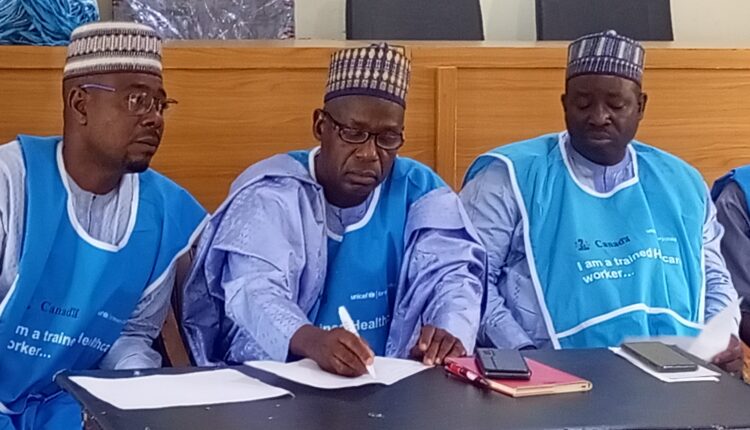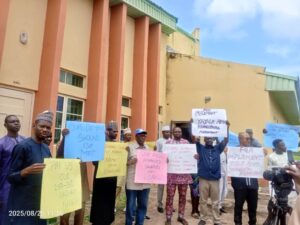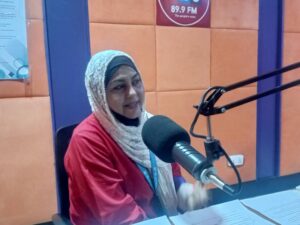
By Mubarak Aliyu Kobi
Bauchi state Government, in collaboration with United Nations Children’s Fund (UNICEF) commenced training for 646 community-based frontline healthcare workers on primary healthcare gender responsiveness.
Declaring the three-day training open, in Toro Local Government Area of the state, UNICEF Chief of Bauchi field office, Mr. Tushar Rane, said the training is part of the capacity building efforts to encourage gender responsiveness within the state healthcare sector.
Mr. Rane, represented by UNICEF Health Specialist, Mr Emedo Emmanuel, said the responsiveness training, with focus on Reproductive, Maternal, Newborn, Child, Adolescent Health (RMNCAH), was part of the health sector development initiative funded by the Government and People of Canada, through Global Affairs Canada.
The health specialist, who said the training would create and empower demand for Primary Health Care services, especially with regards to antenatal and postnatal care, skilled Birth attendance, child immunization, among others, urged the state government to step up effort in bridging identified gaps in knowledge and gender responsiveness of RMNCAH delivery.
According to him, “lack of female practitioners and bad behaviours of some health workers, among other factors have been identified as major hindrances to the demand for healthcare services among pregnant women and other people of the state”.
UNICEF Gender Consultant, Ms Kabati Baba-Tokara, said the training would help the participants to understand gender-related barriers in RMNCAH, saying that understanding gender responsiveness would reduce the burden of maternal and infant mortality and morbidity.
In his speech, the Chairman, Bauchi State Primary Healthcare Development Agency, Dr. Rilwanu Mohammed, said the sufferings face by women before being attended to by health workers and the lack of man power in the health sector also contribute to poor access to healthcare services.
Dr Rilwanu Mohammed, however, said “the present administration has approved the recruitment of 1,016 community midwives to be deployed across all primary healthcare centres in the state”.


